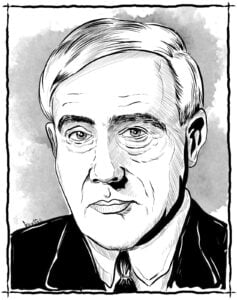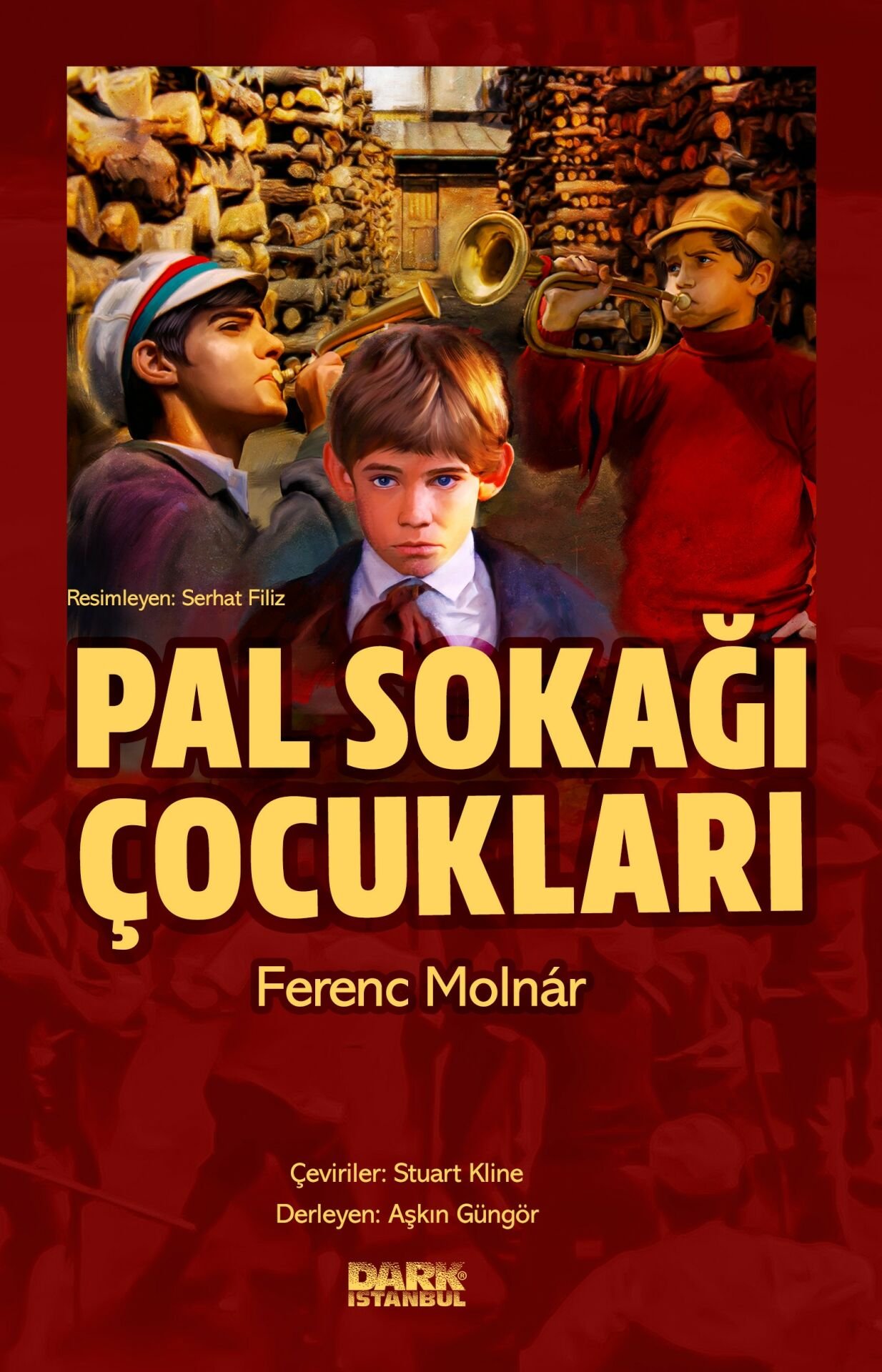Ferenc Molnar
 |
Ferenc Molnár 12 Ocak 1878 - 1 Nisan 1952 Ferenc Molnár, orta halli bir ailenin çocuğu olarak 12 Ocak 1878 tarihinde Macaristan ‘ın başkenti Budapeşte ‘de doğmuştur. Asıl adı Ferenc Neumann olmasına rağmen hukuk fakültesini bitirir bitirmez gazetecilik yapmaya başladığı için o yıllarda mahlas kullanmak yaygın olduğundan Molnár adını aldı. Doğduğu kenti ve burada yaşayan halkı çok iyi tanıdığı için makalelerini yazarken özenli olmaya dikkat ediyor ama oldukça rahat ve eğlenceli bir üslupla kendine özgü bir yazar olarak Molnár adıyla ünü yayılıyordu. 23 yaşında eleştirmenlerden tam not alan küçük burjuva hayatını mizahi bir şekilde irdeleyen ilk eseri “Avukat”yayınlandı. Ertesi yıl yazdığı “Bay Doktor” adlı tiyatro eseri çok beğenildi. Ve nihayet yirmili yaşlarının sonunda ünü tüm dünyaya yayılan ‘A Pál utcai fiúk’ “Pal Sokağı Çocukları” haftalık bir dergide yayınlanmaya başladı. Nemecsek, Boka János, Csónakos, Geréb és, Barabás. Feri Áts, Pásztor Kardeşler, Kolnay, Csele, Weisz,Richter ve diğer çocukların öyküsü daha ilk bölümlerden itibaren fenomen oldu. Her kesim tarafından merakla beklenen haftalık öykü yayıncıların ısrarı üzerine 1907 yılında kitaplaşınca iki yıldan kısa bir sürede birçok Avrupa diline çevrilerek best seller oldu. Macaristan’da 1968 yılına kadar toplam 45 baskı yapılınca birçok Avrupa ülkesinde okulların müfredatına girmeyi başarınca üstelik bazı okullarda da zorunlu kitaplar listesine alınınca aynı yıl ünlü Macar yönetmen Zoltán Fábri hafızalardan silinmeyen filmi çekerek Oscar’a aday oldu. 1907 yılında dünya klasikleri arasına gireceğini tahmin etmediği kitabı daha ilk basımdan itibaren çok satmaya başlamasına rağmen bu ününden bağımsız olarak aynı yıl “Şeytan” (Az ördög) oyunuyla ülke dışındaki ilk başarısını da elde etti. Sonraki yıllarda yazmış olduğu oyunları Amerika ve Avrupa’nın Viyana, Berlin, Roma gibi kentlerindeki ünlü tiyatro salonlarında sahnelenerek popüler oldu. Küçük burjuva toplumlarıyla daima derdi vardı. Onları mizahi ve ironik bir dille yazmayı çok seviyordu. Bu nedenle epeyce eleştirildiği de oldu. Her şeye rağmen “Liliom” eseriyle müthiş başarılar elde etti. 1909’da Budapeşte, 1912’de Viyana’daki salonlarda kapalı gişe oynadı. 1934’de Avusturyalı yönetmen Friedrich Anton Christian Lang ilk defa sinemaya uyarladı. 1945’de Broadway ’de sahnelenen “Carousel” (Dönmedolap) müzikali bu filmden esinlenerek yazıldı. 1.Dünya Savaşı yıllarında Rusya ve Avusturya-Macaristan İmparatorluğu arasında yaşanan çatışmada Galiçyacephesinde Rus’ların Lemberg’i ele geçirmesine kadar savaş muhabirliği yaptığı anılarını sonradan kitap haline getirdi. 1920 ve 1930’lu yıllarda yazdığı eserleri okuyucular tarafından çok sevildi. 1920’li yıllarda yurtdışında vakit geçirmeye başladı. Birçok ülkedeki otellerin müdavimi olarak odalar kiraladı. Üç defa evlilik yaptı. Eşleri sırasıyla ünlü Macar ressamı Margit Vészi, prima donna Macar aktris ve şarkıcı Sári Fedák ve ünlü aktirist Lili Darvas oldu. 1939’da 2.Dünya Savaşı korkusuyla İsviçre ‘ye sığındı ve ertesi yıl Birleşik Amerika’ya göç etti. Bundan sonraki hayatı depresif ve huzursuz seyretmeye başladı. Git gide sona yaklaştığının farkındaydı. Doğduğu ve çok sevdiği kenti Budapeşte iki savaş sonrası tanınmaz bir haldeydi ve buna dayanamıyordu. Her şeye rağmen bir gayret daha gösterip “Panoptikum” adlı eserinin sahnelenmesine ön ayak oldu. Bu da yeterli sonuç vermeyince Ferenc Molnár dış dünyayla ilişkisini keserek tamamen içe kapandı ve çok geçmeden 1 Nisan 1952 tarihinde New York‘da 74 yaşında hayata gözlerini yumdu. Ferenc Molnár’ın en tanınmış eseri “Pál Sokağı Çocukları” kitabının yayınlanmasının 100. yıldönümü nedeniyle, romandaki olayların yaşandığı ve aynı zamanda da yazarın o zamanlar oturduğu Budapeşte VIII. Bölgesine roman kahramanlarının heykelleri dikildi. Evlilikleri: Yazdığı bazı tiyatro oyunları: 1903 – Bay Doktor Bazı Romanları: |
 |
